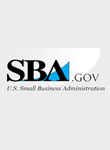As a small business owner, it is important that you file properly and claim the right tax deductions to avoid audits. Here are a few tax preparation tips from Jeanne A. Hulit, SBA associate administrator for Capital Access, and acting New England regional administrator of the U.S. Small Business Administration.
1. Keep Good Records.
Proper record-keeping year-round is the first step to ensuring your taxes are filed accurately and that you have the paperwork you need to back-up your deduction claims should you be audited.
2. Understand Your Deductions.
What small business deductions can you take? Do you have the documentation and original receipts to back them up? Tax credits and deductions change each year.
3. Utilize the Small Business Jobs Act Tax Provisions.
The Small Business Jobs Act of 2010 signed into law by President Obama has over 17 tax provisions decreasing the tax burdens for small businesses—several of these provisions can be taken advantage of during this year’s tax season. Utilizing these provisions will provide great savings for your business.
4. Remember the tax credits within the Affordable Care Act.
These tax credits will allow small businesses to cover up to 35 percent of the premiums a small business pays to cover its workers. In 2014, the rate will increase to 50 percent.
5. Avoid Common Audit Traps.
It is very important to be aware of potential red flags and act on them before the IRS does.
- Classifying employees as independent contractors: Independent contractors and employees are not the same, and it’s important to understand the difference. In the eyes of the IRS, misclassification can be seen as an attempt to avoid payroll taxes, and non-compliance can bring penalties and back taxes.
- Home office deduction: This deduction is very specific and not all home-based businesses will qualify. Likewise, if you run your business from a commercial location and claim the home office deduction, you might trigger some interest from the IRS. Know how to determine if you are eligible to claim it, and what specific expenses you can write off.
- Large sum miscellaneous deductions: If you claim a large amount of itemized deductions relative to your income, the IRS will get suspicious. Likewise, if you bucket a large amount of miscellaneous expenses, you may raise eyebrows. Be specific and label every deduction.
6. Keep business and personal expenses separate.
The IRS scrutinizes personal expenses that may have been claimed as a business expense, such as using a business vehicle for personal trips. Be diligent about keeping good records. Maintain separate bank and credit card accounts for your business.
For additional information on these tax tips and current year tax deductions, visit the SBA Small Business Tax Guide or contact the IRS www.irs.gov.
